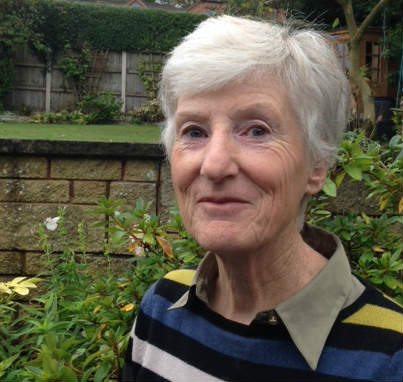In a guest post Kath Parson, Chief Executive of the Older People’s Advocacy Alliance (OPAAL), writes about a project supporting older people affected by cancer.
‘Cancer, Older People and Advocacy’ is about supporting older people affected by cancer to find their voice and say what it is they want. Evidence from Macmillan Cancer Support, our project partner, and the Department of Health indicates ingrained age discrimination in cancer services: ‘Older people with cancer receive less intensive treatment than younger people. …… there is increasing evidence that under-treatment of older people may occur‘
 We’re doing our best to change that by recruiting, training and supporting older people who have themselves been affected by cancer to become peer advocates. We’re working on the basis that those who’ve lived through the experience of cancer, either because they or someone close to them have had a cancer diagnosis, are best placed to empathise and support others in the same situation.
We’re doing our best to change that by recruiting, training and supporting older people who have themselves been affected by cancer to become peer advocates. We’re working on the basis that those who’ve lived through the experience of cancer, either because they or someone close to them have had a cancer diagnosis, are best placed to empathise and support others in the same situation.
I’ve also been affected by cancer and lost relatives and very close friends – so I can relate to a lot of the issues that people have and some of the unfairness that happens… I’m not afraid to challenge. That’s the kind of thing people haven’t got when they have an illness. All those strengths are taken out because of the day to day – the appointments, the pain, and the personal issues they have to deal with. Advocate

Where we’ve struggled so far has been in helping health professionals understand that there might be a problem in cancer services for some older people. Despite the evidence there seems to be a reluctance to refer to independent advocacy. Maybe it’s because they don’t like being questioned or maybe they simply don’t see the need. Whatever the reason, it is a problem. One advocate explains:
That was a difficult session, particularly because there were three consultants in the room. The consultants were quite apprehensive really, I would say, about me being there… One of them actually did ask what my role was, which I explained. I emphasised that my role was not to make decisions for my client. It was to help him to understand the situation, what was on offer, to help him to make some informed choices, and decisions about his treatment and that was OK after that.
To find out more about Cancer, Older People and Advocacy, check out our blog.


